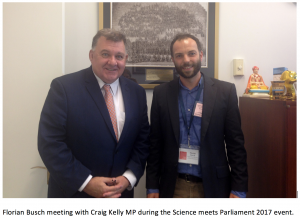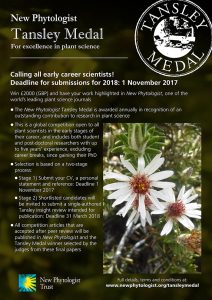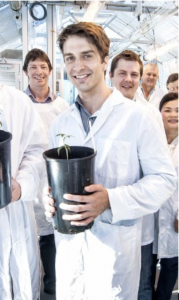- About
- Members
- Join
- Member log in
- Membership Renewal
- Member directory
- Life Members
- ASPS Life Member Professor Graham Farquhar
- ASPS Life Member Associate Professor Hendrik (Hank) Greenway
- ASPS Life Member Dr Marshall (Hal) D Hatch
- ASPS Life Member Dr Paul E Kriedmann
- ASPS Life Member Dr Mervyn Ludlow
- ASPS Life Member Emeritus Professor Rana Munns
- ASPS Life Member Conjoint Professor Christina E Offler
- ASPS Life Member Professor (Charles) Barry Osmond
- ASPS Life Member Emeritus Professor John W Patrick
- ASPS Life Member Dr Joe Wiskich
- Corresponding Members
- Elected Fellows
- Events
- Awards & Funding
- Employment
- Publications
- Research
- Teaching
- Menu
The different flavours of when Science meets Parliament
05 October 2017
By Florian Busch from the Australian National University, Canberra, ACT
During March 2017, parliament in Canberra became flooded with scientists of all kinds of flavours for two days as Science met Parliament in this annual event. This event aims at increasing the dialogue between politicians and scientists to increase the awareness and understanding of how STEM can drive Australia’s economic, social, environmental, and cultural future. I was lucky to be picked as one of two early/mid-career plant scientists representing the Australian Society of Plant Scientists. The two days were filled with quite unique experiences, including a full day of career development and preparation for meeting the parliamentarians, and then, of course, one big day in Parliament.
Australia’s Chief Scientist Dr. Alan Finkel opened the first day setting the scene for what to expect. This was followed by sessions on how science is turned into news and used to shape policy. The focus of the day, however, was on how to make the most of the little time we had for our meeting with the parliamentarians. How much science background could we expect? How detailed should we present our work during our meeting with the parliamentarians? In preparation, we paired up in small groups to practice our ‘elevator pitch’, where we were challenged to explain the nuances of our work in a minute or two, to people outside our fields of expertise. My major lesson from this exercise was discovering the fast pace at which politicians move from one topic to the next. This also turned out to be a great networking opportunity, allowing me to meet scientists from diverse fields of research across all of Australia. The highlight of the day, however, was a gala dinner at Parliament House, where we heard from the newly minted Minister for Industry, Innovation and Science, The Hon Arthur Sinodinos, and the Leader of the Opposition, The Hon Bill Shorten, as how they might envision science in future politics.
 On the second day, we were inspired by Australian of the Year, Prof. Alan Mackay-Sim, and had the chance to meet the Shadow Minister, The Hon Kim Carr. Lunch was broadcast live on TV at the National Press Club, where the Minister for Industry, Innovation and Science was grilled with questions from the press. The definite highlight of the day was meeting our parliamentarians. I was paired up with two other scientists to meet with MP Craig Kelly. This is when practicing our ‘elevator pitch’ the day before paid off; I only had a few minutes to discuss the role of photosynthesis research in securing food production before MP Craig Kelly ran off to his next meeting. He left us with a deep impression of how parliament works and, hopefully, we left him with some insights into how science works and can shape the economy.
On the second day, we were inspired by Australian of the Year, Prof. Alan Mackay-Sim, and had the chance to meet the Shadow Minister, The Hon Kim Carr. Lunch was broadcast live on TV at the National Press Club, where the Minister for Industry, Innovation and Science was grilled with questions from the press. The definite highlight of the day was meeting our parliamentarians. I was paired up with two other scientists to meet with MP Craig Kelly. This is when practicing our ‘elevator pitch’ the day before paid off; I only had a few minutes to discuss the role of photosynthesis research in securing food production before MP Craig Kelly ran off to his next meeting. He left us with a deep impression of how parliament works and, hopefully, we left him with some insights into how science works and can shape the economy.
Contact: Florian Busch (florian.busch@anu.edu.au) for further enquires.
GPC e-bulletin Sept
04 October 2017
|
|||||||||||||||||||||||||||||||||||||||
|
|||||||||||||||||||||||||||||||||||||||
|
|||||||||||||||||||||||||||||||||||||||
|
Early career plant scientists! Your CV needs a Tansley Medal
28 September 2017
Calling all early career plant scientists!
 The New Phytologist Tansley Medal is awarded annually in recognition of an outstanding contribution to plant science by an early career researcher (student and post-doctoral researchers with up to five years’ experience since gaining/defending their PhD are eligible). The winner will receive a prize of £2000 (GBP) and will author a Tansley insight review that will be published in New Phytologist, accompanied by an Editorial announcing the winner and finalists. The application deadline for this year’s competition is 1 November 2017.
The New Phytologist Tansley Medal is awarded annually in recognition of an outstanding contribution to plant science by an early career researcher (student and post-doctoral researchers with up to five years’ experience since gaining/defending their PhD are eligible). The winner will receive a prize of £2000 (GBP) and will author a Tansley insight review that will be published in New Phytologist, accompanied by an Editorial announcing the winner and finalists. The application deadline for this year’s competition is 1 November 2017.
The Tansley Medal award is an opportunity to recognise an outstanding scientist in the early stages of their career, and supporting the next generation of plant scientists is one of the main activities of the New Phytologist Trust. Please support us in this endeavour by spreading the word to anyone you know who might be eligible to apply for the Tansley Medal award. If you have any queries regarding the medal or the submission process please do not hesitate to get in touch. More details on the Tansley Medal can be found at: https://www.newphytologist.org/tansleymedal.
Nominations now open for the ASPS committee.
19 June 2017
Dear ASPS members,
We are seeking nominations for a considerable number of posts this year for the ASPS committee. Its an exciting time to be a member as we will be running our own meetings again so this require some liaising with the annual meeting sub-committee/local organisers. If you are keen to be involved we are wanting to hear from you. Please see nomination form attached.
The positions currently vacant from October this year include:
Discipline reps (x6) for:
Genetics and Molecular Biology
Cell Biology
Plant Development
Education
Whole Plant
Global Change
3 student members
Please get in contact with matthew.gilliham@adelaide.edu.au or current committee members for more information. See the current committee here www.asps.org.au
Thanks,
Matt
_________________
ARC Centre of Excellence in Plant Energy Biology
Deputy Head of School (Research)
School of Agriculture, Food and Wine
University of Adelaide
Ph: +61 8 8313 8145 | Twitter: @IonPlants
Lab website: Plant Transport and Signalling Lab
Honorary Secretary, Aust Soc Plant Scientists
May GPC E-Bulletin
05 June 2017
|
|||||||||||||||||||||||||||||||||||||
|
|||||||||||||||||||||||||||||||||||||
|
|||||||||||||||||||||||||||||||||||||
|
May GPC E-Bulletin
05 June 2017
|
|||||||||||||||||||||||||||||||||||||
|
|||||||||||||||||||||||||||||||||||||
|
|||||||||||||||||||||||||||||||||||||
|
May GPC E-Bulletin
05 June 2017
|
|||||||||||||||||||||||||||||||||||||
|
|||||||||||||||||||||||||||||||||||||
|
|||||||||||||||||||||||||||||||||||||
|
May GPC E-Bulletin
05 June 2017
|
|||||||||||||||||||||||||||||||||||||
|
|||||||||||||||||||||||||||||||||||||
|
|||||||||||||||||||||||||||||||||||||
|
GPC E-Bulletin and postdoc opportunity
29 May 2017
Hello ASPS members,
We have a new employment opportunity Research Associate in Hybrid Mimics.
|
|||||||||||||||||||||||||||||||||
|
|||||||||||||||||||||||||||||||||
|
The impact of drought on Australian pulse crops
05 April 2017
ASPS poster award winner Michael Dodt tells a story about his success at COMBIO 2016
 My PhD research has focussed on improving our understanding of the impact that drought stress has on Australian pulse crops. My research mainly revolves around four areas of study: photosynthetic responses to drought, root morphology / architecture; crop modelling (APSIM) and transcriptomics (RNA-Seq). A major part of my project has been establishment and evaluation of a novel chemical seed pre-treatment to enhance root development of commercial crops for improved drought tolerance. This fits into our team’s larger project aimed at improving biotic and abiotic stress tolerance of a range of crop species as well as improving nutritional value of crops. I was fortunate enough to have the opportunity to present at COMBIO in 2016 and was thrilled to win the best poster award. COMBIO provided an excellent opportunity to gain experience presenting at a conference and I highly recommend it to all early career researchers – especially if you’re nervous about presenting. This is a great opportunity to gain exposure and confidence in the scientific community. It is an excellent event for PhD students since it’s big and broad enough to fit in comfortably while networking with top tier scientists from multiple disciplines. Speakers were fantastic and there were plenty of opportunities for interaction. I look forward to my next opportunity.
My PhD research has focussed on improving our understanding of the impact that drought stress has on Australian pulse crops. My research mainly revolves around four areas of study: photosynthetic responses to drought, root morphology / architecture; crop modelling (APSIM) and transcriptomics (RNA-Seq). A major part of my project has been establishment and evaluation of a novel chemical seed pre-treatment to enhance root development of commercial crops for improved drought tolerance. This fits into our team’s larger project aimed at improving biotic and abiotic stress tolerance of a range of crop species as well as improving nutritional value of crops. I was fortunate enough to have the opportunity to present at COMBIO in 2016 and was thrilled to win the best poster award. COMBIO provided an excellent opportunity to gain experience presenting at a conference and I highly recommend it to all early career researchers – especially if you’re nervous about presenting. This is a great opportunity to gain exposure and confidence in the scientific community. It is an excellent event for PhD students since it’s big and broad enough to fit in comfortably while networking with top tier scientists from multiple disciplines. Speakers were fantastic and there were plenty of opportunities for interaction. I look forward to my next opportunity.
Email: michaeldodt1@gmail.com
Centre for Tropical Crops and Biocommodities, QUT, Brisbane.
Recent Posts
Tags
Archives
- June 2025
- May 2025
- April 2025
- March 2025
- February 2025
- January 2025
- December 2024
- November 2024
- October 2024
- September 2024
- August 2024
- July 2024
- June 2024
- May 2024
- April 2024
- February 2024
- January 2024
- November 2023
- October 2023
- September 2023
- August 2023
- July 2023
- June 2023
- May 2023
- April 2023
- March 2023
- February 2023
- December 2022
- November 2022
- October 2022
- September 2022
- August 2022
- July 2022
- June 2022
- May 2022
- April 2022
- March 2022
- February 2022
- January 2022
- December 2021
- November 2021
- October 2021
- September 2021
- August 2021
- July 2021
- June 2021
- April 2021
- March 2021
- February 2021
- January 2021
- December 2020
- November 2020
- October 2020
- September 2020
- August 2020
- July 2020
- June 2020
- May 2020
- April 2020
- March 2020
- February 2020
- January 2020
- December 2019
- November 2019
- October 2019
- September 2019
- August 2019
- July 2019
- June 2019
- May 2019
- April 2019
- March 2019
- February 2019
- January 2019
- December 2018
- November 2018
- October 2018
- September 2018
- August 2018
- July 2018
- June 2018
- May 2018
- April 2018
- March 2018
- February 2018
- January 2018
- December 2017
- November 2017
- October 2017
- September 2017
- August 2017
- July 2017
- June 2017
- May 2017
- April 2017
- March 2017
- February 2017
- January 2017
- December 2016
- November 2016
- October 2016
- September 2016
- August 2016
- July 2016
- June 2016
- May 2016
- April 2016
- March 2016
- February 2016
- January 2016
- December 2015
- November 2015
- October 2015
- September 2015
- August 2015
- July 2015
- June 2015
- May 2015
- April 2015
- March 2015
- February 2015
- January 2015
- December 2014
- November 2014
- October 2014
- September 2014
- August 2014
- July 2014
- June 2014
Copyright 2017 Australian Society of Plant Scientists Disclaimer & Privacy
Website by Michael Major Media






